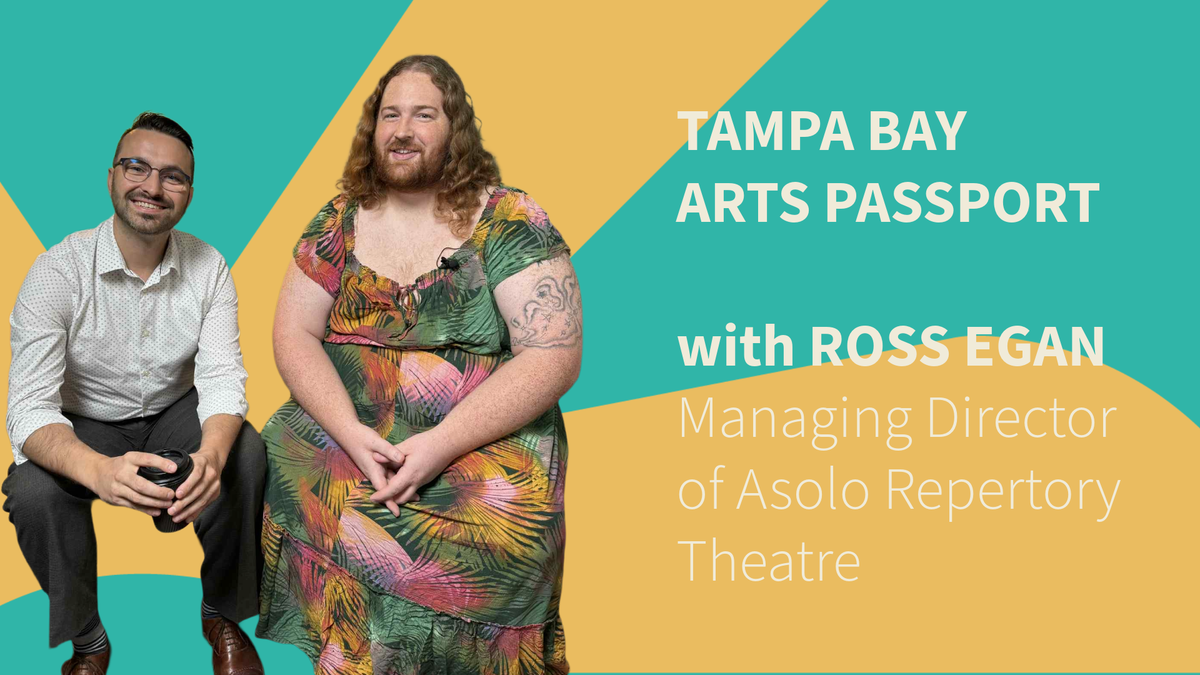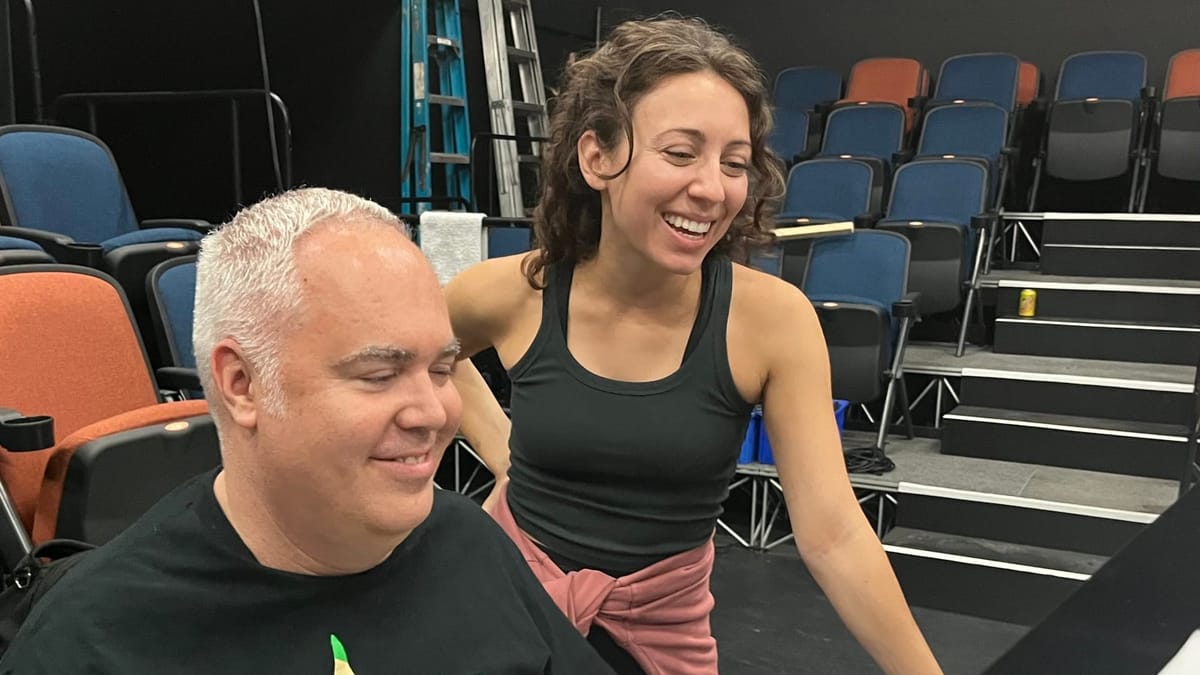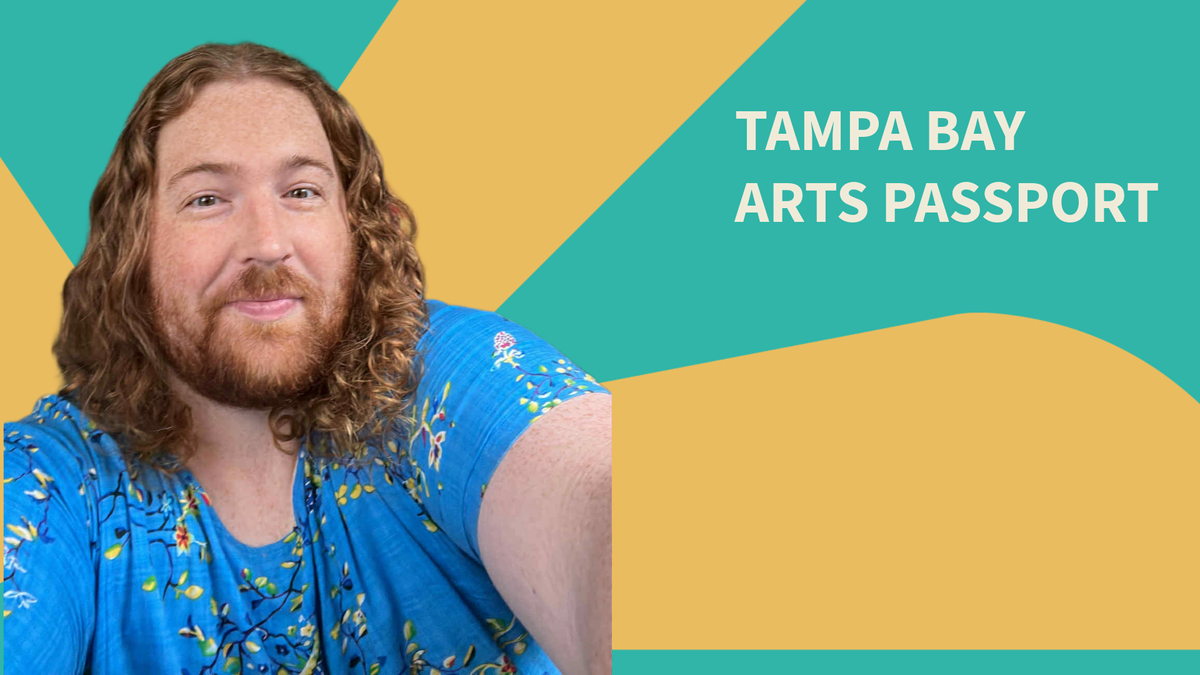The Mission Is the Heart. The Model Is the Engine.

Asolo Rep’s Ross Egan on the nonprofit reboot theater actually needs.
This isn’t the part of theater that trends on TikTok, but it’s the part that keeps the lights on.
Sarasota’s Asolo Repertory Theatre managing director Ross Egan spends his days on the not-so-glam side of the stage—“marketing and fundraising all the way down to legal, finance, facilities… box office. IT is in there,” he says. The shorthand: if it’s not onstage, it’s his problem.
Why now? Because the old nonprofit playbook is cracking—ticket sales that can’t possibly keep up with inflation, shrinking corporate support, and a post-pandemic cost structure that finally acknowledges what people should have been paid all along. Egan names the tension plainly: “The mission is the heart, but the model is the engine.”
The “engine,” historically, was a balance between earned revenue (tickets, classes) and contributed revenue (philanthropy). That worked—until it didn’t. “Most theaters… are trying to produce 2015 theater at 2025 prices. And you can’t do that. It’s not sustainable,” Egan says. Raising ticket prices like a commercial producer would slam the door on access; staying flat means the math breaks somewhere else—usually on staff salaries, artist fees, or the number of shows you can responsibly produce.
So leaders are improvising. Sometimes literally. During the pandemic, Egan jokes he blurted, “We should just do Grease at a drive-in.” They did. It ran for 18 months. That same scrappy DNA fuels Asolo Rep’s touring work: “We simplified it… shorter timelines to fit in class periods… bring it out a little bit and get out of that proscenium.”
But innovation takes time and cash, which is why Egan pushes a deceptively simple fix audiences can own: “If everyone that came to a show gave five or ten dollars… that’s really helpful.” For smaller orgs, it’s survival money. For bigger ones, it keeps the machine humming without gutting the art.
There’s pride, too, in what happens locally. “Everything is made in [Sarasota]… Every dollar that you spend at [Asolo Rep] stays here,” he says. The pitch isn’t charity—it’s value. You get world-class theater, built by your neighbors. And in a season that opens with Come From Away—a story about strangers taking care of each other—that feels exactly right. As Egan puts it, the show “reminds you that there’s hope in the world.”
If the heart is the mission and the engine is the model, sustainability is the road. “My goal is for everyone to be around in 10, 15, 20, 25 years,” Egan says. The rest is just stagecraft.
If You Go
Come From Away at Asolo Repertory Theatre
Opens Nov. 15; runs through late December
Get tickets here
Listen / Watch
- 🎧 Play the episode:
Listen on Apple Podcasts
Listen on Spotify
- 🎬 Watch the video:
Other Episodes


Key Conversations
- “The mission is the heart, but the model is the engine.”
- “Most theaters… are trying to produce 2015 theater at 2025 prices. And you can’t do that.”
- “We are not expected to break even on earned revenue… [otherwise] that would be a barrier of entry to everyone.”
- “If everyone that came to a show gave five or ten dollars… that’s really helpful.”
- “Everything is made in [Sarasota]… Every dollar that you spend at [Asolo Rep] stays here.”
- “Sustainability… is my highest priority.”
- On Come From Away: “It reminds you that there’s hope in the world.”
Transcript: Tampa Bay Arts Passport Podcast
Guest: Ross Egan, Managing Director, Asolo Repertory Theatre
Avery:
Hi, hello, and welcome to another episode of the Tampa Bay Arts Passport. My name is Avery Anderson, and I want to welcome you in today. Today’s conversation is with Ross Egan, the managing director of the Asolo Repertory Theatre in Sarasota. We’re very excited, and he drove all the way up from Sarasota, so you’re going to have to listen to this podcast.
Quick note about the Tampa Bay Arts Passport: we are your guide, your insider look at all things arts in Tampa Bay. Please give us a follow, and please enjoy this episode.
So, just want to thank you again for coming on today, Ross. We’re so excited to chat with you.
Ross:
Of course.
Avery:
I want to start with just a very basic question for you. What is a managing director, and what is a managing director at Asolo Rep? Because I think a lot of times people don’t know what that role really is.
Ross:
Yeah, I mean, essentially it’s the business side. So the most basic way to think about it is: a lot of stuff happens on the stage, and that’s mostly the artistic director. Asolo Rep has the most amazing artistic director, Peter Rothstein. He handles all that work—he curates the season and makes sure the product is really great.
And then behind the stage, there’s a lot that happens in terms of business operations. I handle all of that with the most amazing team. That means anything from marketing and fundraising all the way down to legal, finance, facilities, box office, IT—it goes on and on.
Avery:
And you’ve been in this role for a little over two years now?
Ross:
Yeah, I started July 1, 2023.
Avery:
How are you enjoying Sarasota? How are you enjoying the role?
Ross:
Oh my gosh, I mean, I love Sarasota. They had me move down in July, which I feel like was rude.
Avery:
(Laughs) You got the worst of it.
Ross:
Yeah, that was rude! The board was great, and it made sense with the fiscal year and everything, but I moved down here and thought: oh, I live in a sauna now.
But no, I really love it. It’s been amazing not only to meet the people in Sarasota—the community is so diverse in terms of viewpoints, experiences, and backgrounds—but also to see how my kids are being exposed to things they never would have been otherwise. My youngest daughter loves circus—she’s obsessed with it—and now she’s doing acrobatics and silks. That’s really cool, because I don’t know of another town the size of Sarasota that has this density of arts and culture.
People often say they come for the beaches and move for the arts and culture. That’s been really nice. And then in terms of Asolo Rep: just a fantastic team. The quality of the work is amazing—that’s what attracted me to come here in the first place. Working with Peter was another big reason. He and I make a really good team.
Avery:
I want to ask what drew you to Asolo, because you’ve worked at other theaters before. You’re not coming in from outside the nonprofit world—you worked in Chicago, you worked at Barter Theatre. What brought you to Asolo? And where did this passion for nonprofit administration come from?
Ross:
Oh my gosh—where did it come from?
So, in Chicago, I had the dream of being an actor. I moved there and realized I had too much anxiety for that path. I also just wasn’t as good as many of the people I met. Maybe I would have gotten there, but I also craved stability. My wife and I met in college during summer stock, and being two actors trying to plan a life together is really hard.
So, I got into for-profit HR. That’s the age-old story: you get a temp job and never leave. Being an actor was actually really good training for human resources—it teaches you to think on your feet and empathize in ways others might not.
During that time, what was great about storefront theater in Chicago was that everyone had a day job and rehearsed at night. The pay was terrible, but my wife and I thought, “We both have jobs—why don’t we start our own company?” We noticed underappreciated musicals weren’t really being produced, so that’s what we started with. Then our business model shifted: we did nothing but site-specific work and found spaces, which was really difficult for musicals but also rewarding.
Eventually, once my first child was born and I was commuting 45 minutes to an hour every day, I realized I wasn’t happy. I was happiest when I was producing. So, I decided to go back to school for more training. That helped me on the financial side.
At Barter, they needed a managing director, and I was able to step in and turn things around with the team. That really pulled me into nonprofit theater. Now, I never wake up dreading work. Even on bad days, it’s fulfilling. People care deeply, both the audience and the staff.
What attracted me to Asolo was: I was ready for a new challenge, I wanted to work with Peter, and I wanted to take on a larger, storied institution recovering from the pandemic. When I visited Sarasota, I thought, “This place is awesome. I should live here.”
Avery:
I’m curious if your experience with site-specific, underproduced musicals has influenced your work at Asolo. It’s very different programming—Asolo is one of the largest, most storied theaters in the state with a big proscenium. Do you see any correlations?
Ross:
I think so. Peter also came from founding a midsize theater, so both of us know what it means to be scrappy and innovative. That mindset carried over.
At Barter, during the pandemic, I joked we should do Grease at a drive-in. The artistic director said, “There’s an abandoned drive-in on the west side of town.” We walked it, and by July we opened a drive-in Grease. It ran for 18 months! That was problem-solving at its best.
At Asolo, Peter and I have that same vision of bringing theater into different spaces. With Asolo Rep on Tour, we simplified productions, made them shorter, and tailored them to fit in class periods. That allows us to get outside the proscenium and meet people where they are.
Avery:
You and Peter have a unique situation—you both took over Asolo after long-term leadership, right after the pandemic. What has that been like?
Ross:
Linda and Michael did such great work. When they stepped down, Asolo was already an incredible institution. Peter and I started on the same day, which is unusual. We had to learn things together. It allowed us to listen, build relationships, and then begin shaping the season.
Philanthropically, it was a challenge: the community knew Asolo, but both of us were new. That was a double-edged sword. Some relationships needed repair, and starting fresh gave us that chance. We still talk regularly with Linda and Michael—they’re amazing mentors.
And we’re doing really well. Asolo Rep has the largest subscription base in its history, which shows audiences are connecting with the work.
Avery:
I want to dive into nonprofit theater models. I loved one of your posts where you said: The mission is the heart, but the model is the engine. Can you unpack that?
Ross:
Sure. Nonprofit theater developed in the second half of the 20th century to bring high-quality, local theater outside of Broadway, and to develop new work.
The traditional model is built on earned revenue (tickets, classes) plus contributed revenue (donations, grants). Nonprofits aren’t expected to break even on earned revenue—that would mean pricing tickets so high that theater becomes inaccessible.
The problem now is that costs are rising faster than ticket prices. “Most theaters… are trying to produce 2015 theater at 2025 prices. And you can’t do that.” Salaries, union contracts, and quality-of-life expectations are all higher now. That’s good—it’s overdue—but it means the math doesn’t work the same way.
Corporate giving has also dried up, and philanthropy is tightening. So theaters are scrambling—experimenting with co-productions, consolidation, and new models. But those changes take time, money, and patience, which not every community has.
Avery:
One thing you said that stood out was the $5 donation idea.
Ross:
Yes. If every audience member gave just $5 or $10 after seeing a show, it would make a huge difference. A thousand people giving $5 is $5,000. For smaller institutions, that’s survival money. Even for us, it matters.
Every dollar spent at Asolo stays in Sarasota—we make everything here, with local artisans and staff. That’s different from touring productions that bring everything in. Supporting Asolo supports the local economy.
Avery:
Let’s do some rapid-fire. First: what does “artistic community” mean to you?
Ross:
It means being in a place where people value differing viewpoints, and where art allows those conversations to happen. I feel like Sarasota has that.
Avery:
One word: your hope for arts in Tampa Bay?
Ross:
Sustainability. Always sustainability. My goal is for everyone to still be here in 10, 20, 25 years.
Avery:
If you could have dinner with any artist, past or present, who would it be?
Ross:
Robin Williams. I’ve been reflecting on him a lot lately. He was so outwardly joyous, such a pure entertainer, and also deeply human. I think dinner with him would just be really chill.
Avery:
Wonderful. And finally—what should people know about this season at Asolo?
Ross:
We open with Come From Away on November 15. It runs through December. It’s not going to look like the Broadway version—it’s Peter’s vision, and it’s going to be incredible. Even if you’ve seen it before, go see it again. It’s the perfect story for right now.
Avery:
That was probably our nerdiest, most money-filled, most sustainability-filled episode. Thank you so much, Ross, for coming on. Please support Asolo Rep, go see Come From Away this November, and consider donating to your local theater. As Ross said, even a $5 gift matters.
Thank you again for listening. Please continue to follow, subscribe, and share.


